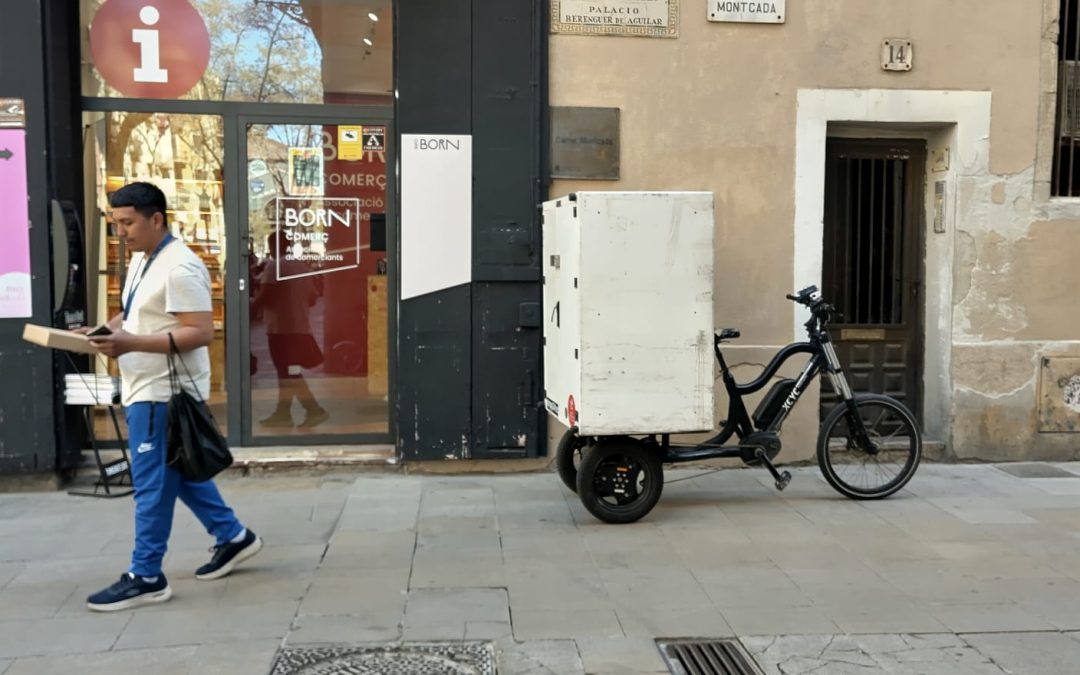Barcelona is walking the talk when it comes to introducing RFID technologies, applying automated processes, and supporting vehicle innovations for advanced and more efficient cycle logistics!
Through a strong collaboration between research institutions (UOC), cycle logistics operators (Vanapedal), technology providers (Konnecta and Inlecom), and public institutions (AMB), the URBANE Living Lab in Barcelona is advancing the digital transformation of sustainable last-mile delivery. The initiative focuses on enhancing the efficiency of cycle logistics and positioning it as a key solution for the decarbonisation of urban freight, particularly in dense cities and metropolitan areas.
At the heart of it all is a micro-hub operated by a cycle logistics service provider, where digital technologies are being deployed to streamline parcel tracking, consolidation, and delivery. Cloud-based computing solutions enable real-time optimisation of operations, while URBANE’s integration of blockchain and digital twin technologies (via CitIQore) allows for the modelling and simulation of alternative last-mile delivery scenarios—offering valuable insights into how services can be adapted and improved.
Three pilot trials have been conducted to test and refine these innovations. The first pilot focused on evaluating different technological configurations in real-world conditions. The second concentrated on optimising route planning, and the third explored improvements in parcel reconsolidation at the micro-hub, combined with further enhancements in routing efficiency. These trials took place in the heart of Barcelona during the spring of 2025.
Initial results are promising. Time savings of up to 25% per parcel delivered were recorded when the digital tools were in use. Although the reduction in total distance travelled was less substantial—suggesting that drivers’ local knowledge still plays an important role—the overall time efficiency gains, particularly in consolidation and delivery phases, clearly demonstrate the value of digital integration.
The insights and findings from these pilot projects will now be shared with municipalities and cycle logistics operators across the Barcelona metropolitan area. This knowledge exchange will help accelerate the uptake of effective digital solutions in urban logistics.
By integrating advanced digital tools, cycle logistics operations can significantly boost their efficiency—cutting delivery times by up to a quarter in some cases. To remain competitive in a complex and evolving market, it is essential to provide cycle logistics operators with open, integrated digital platforms that support smarter, cleaner urban freight services.
